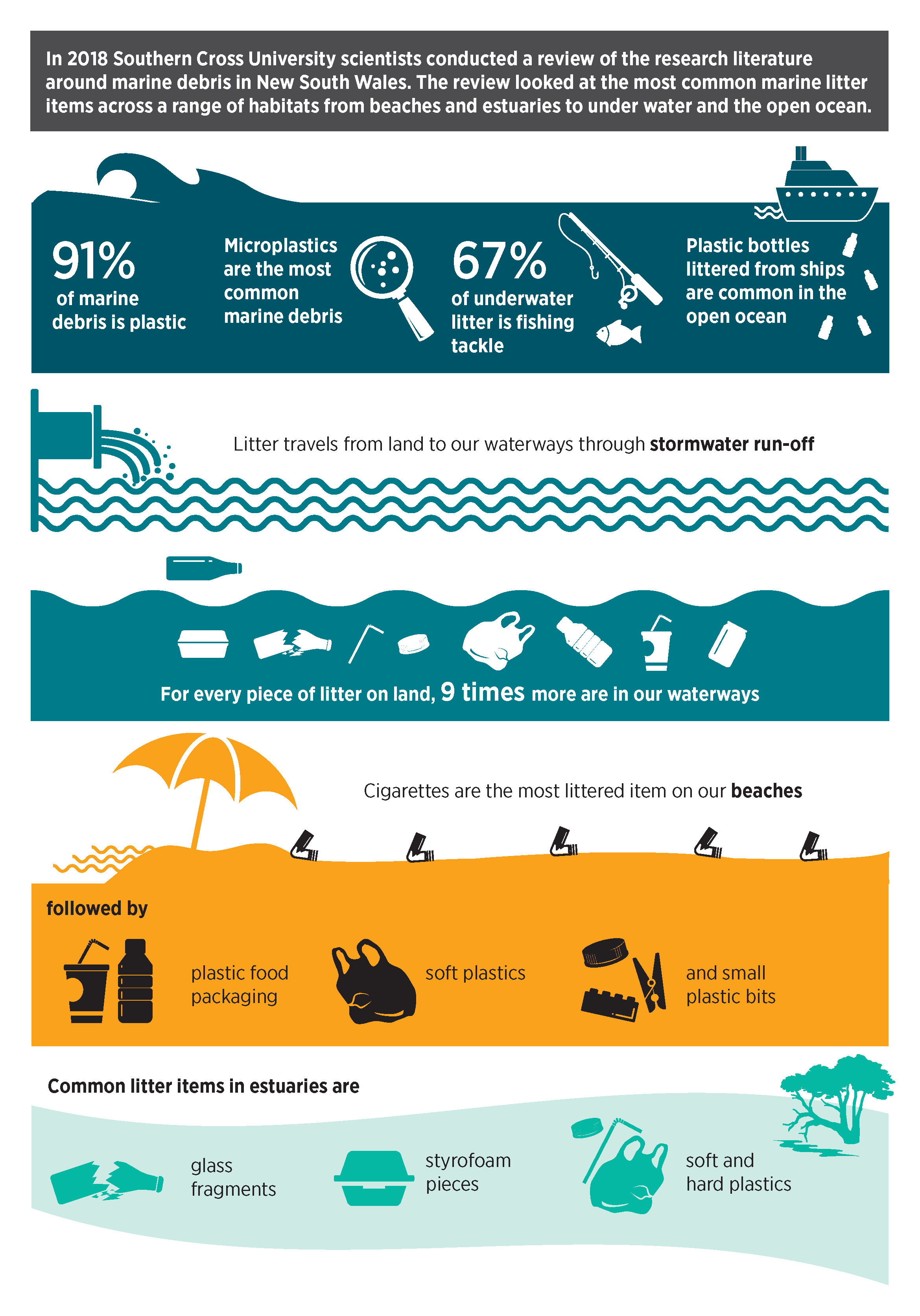Marine debris is a major pollutant in New South Wales. Also known as marine litter, it is human-created waste that has been deliberately or accidentally released into coastal waterways, seas or oceans.
Marine debris is a major threat to the health of our waterways and coastal areas. The debris severely impacts marine wildlife and ecological communities as marine wildlife can ingest it, become entangled in it or be smothered by it. It also disrupts marine habitats. Our enjoyment of the marine environment is affected by debris simply when it is visible, or when we see its harm to flora and fauna.
Debris can be many different materials but, generally, around 90% of visible marine debris is discarded plastic. This plastic waste can range in size from microscopic fragments (microplastics) to larger objects like fishing nets or building materials. Common debris items found in NSW marine environments are plastic bags (intact or in pieces), food and drink packaging, straws, cigarette butts and fishing equipment.
A 2018 review of marine debris across a range of studies in New South Wales revealed the most common marine debris items in different coastal environments: beaches, estuaries, under water and oceans. These are summarised in the key items of debris infographic (PDF 133KB).
Our marine scientists are working closely with the NSW Environment Protection Authority to look at the marine debris issue and its impacts in New South Wales, in collaboration with numerous partners and stakeholders.
Our current marine debris monitoring and research projects include the:
Other NSW Government actions to address marine debris
The NSW Government is committed to taking serious action to reduce litter and marine debris to protect our oceans and marine life. There are strategies and programs in place to ensure we reduce litter and its impact on our waterways and marine estate:
- NSW Waste and Sustainable Materials Strategy 2041 (PDF 2.1MB)
- The NSW Plastic Action Plan
- NSW Litter Prevention Strategy
- Marine Estate Management Strategy.
How you can help
You can help reduce marine debris by ensuring you dispose of your rubbish responsibly and, if safe to do so, remove any litter you see in our waterways. Bring a spare bag to the beach with you to collect any litter you so you can properly dispose of it and make a big difference to the health of our waterways.
Your local council may also be able to put you in contact with volunteer groups who clean up waterways, or let you know when the next clean-up day is in your local area.
Our partners and stakeholders
If you are interested in learning more, our partners and stakeholders have additional information on marine debris and some opportunities on how to get involved:



